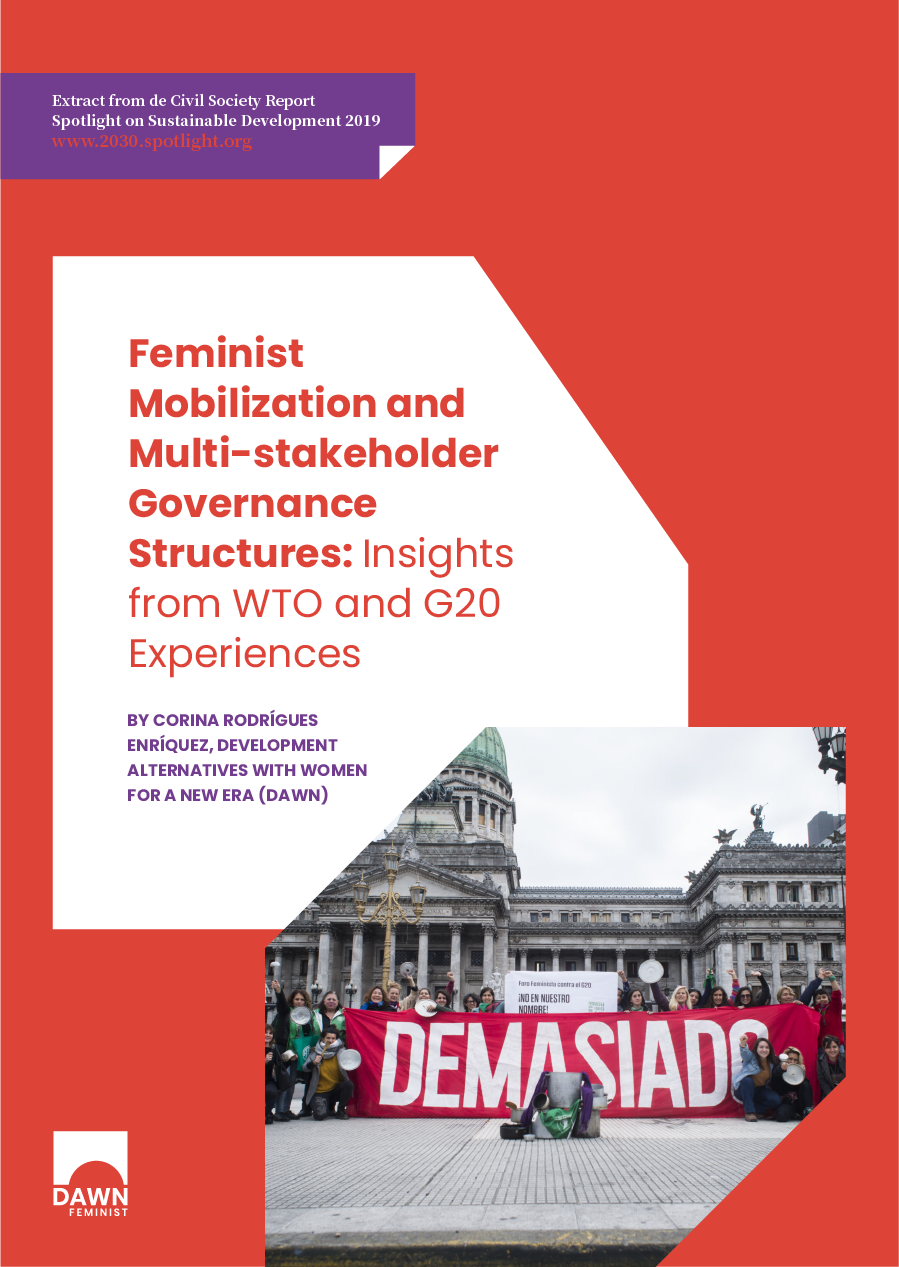Analyses from the many global civil society organisations which contributed to the Spotlight on Sustainable Development 2019 make it clear that to meaningfully tackle the obstacles and contradictions in the implementation of the 2030 Agenda and Sustainable Development Goals needs more sweeping, holistic shifts in how and where power is vested.
Corina Rodríguez Enríquez, Executive Committee member of Development Alternatives with Women for a New Era (DAWN) and on the DAWN Political Economy of Globalisation team gives insights on cross cutting policy areas gained from WTO and G20 experiences on feminist mobilization and multi-stakeholder governance structures. She concludes that while women’s and feminist organisations are increasingly involved in economic issues and their agenda has permeated those of multilateral institutions and global governance, the approach and space for women’s voices allowed by these institutions are controversial and limited.
She gave the example of the WTO instrumentalist approach to women’s rights based on the idea that inequality gaps must be addressed only because it is economically efficient to do so, despite enormous evidence on the gender impact of trade policies.
“There is no possibility of producing gender-responsive trade policies within the framework promoted by WTO. The inclusion of a gender agenda is nothing more than ‘pink washing’.”
Another example was the G20 engagement group dedicated to advancing proposals for the economic empowerment of women. Enriquez describes this formal space as marginal, producing non-binding recommendations and demonstrating at the G20 Summit in Buenos Aires the distance between the voices of women’s resistance in the streets and what institutions were willing to accept as formal engagement.
Those appointed to lead the W20 clearly represented the dominant view that insisted on the economic efficiency of women’s economic empowerment, devaluing the rights perspective. While the W20 declaration included several of the demands of women’s organisations, it was much more because of the persistent push of delegates from the women’s movement than the vision of those who led the process.

These experiences show that the institutions of global governance are adjusting to current times and including references to gender issues; but from a superficial and instrumentalist view of women’s rights, through very limited mechanisms and in opposition to progressive feminist agenda that denounces the cooption of these institutions by the interests of corporations and their functionality to a system that expropriates territories and people’s livelihoods.

